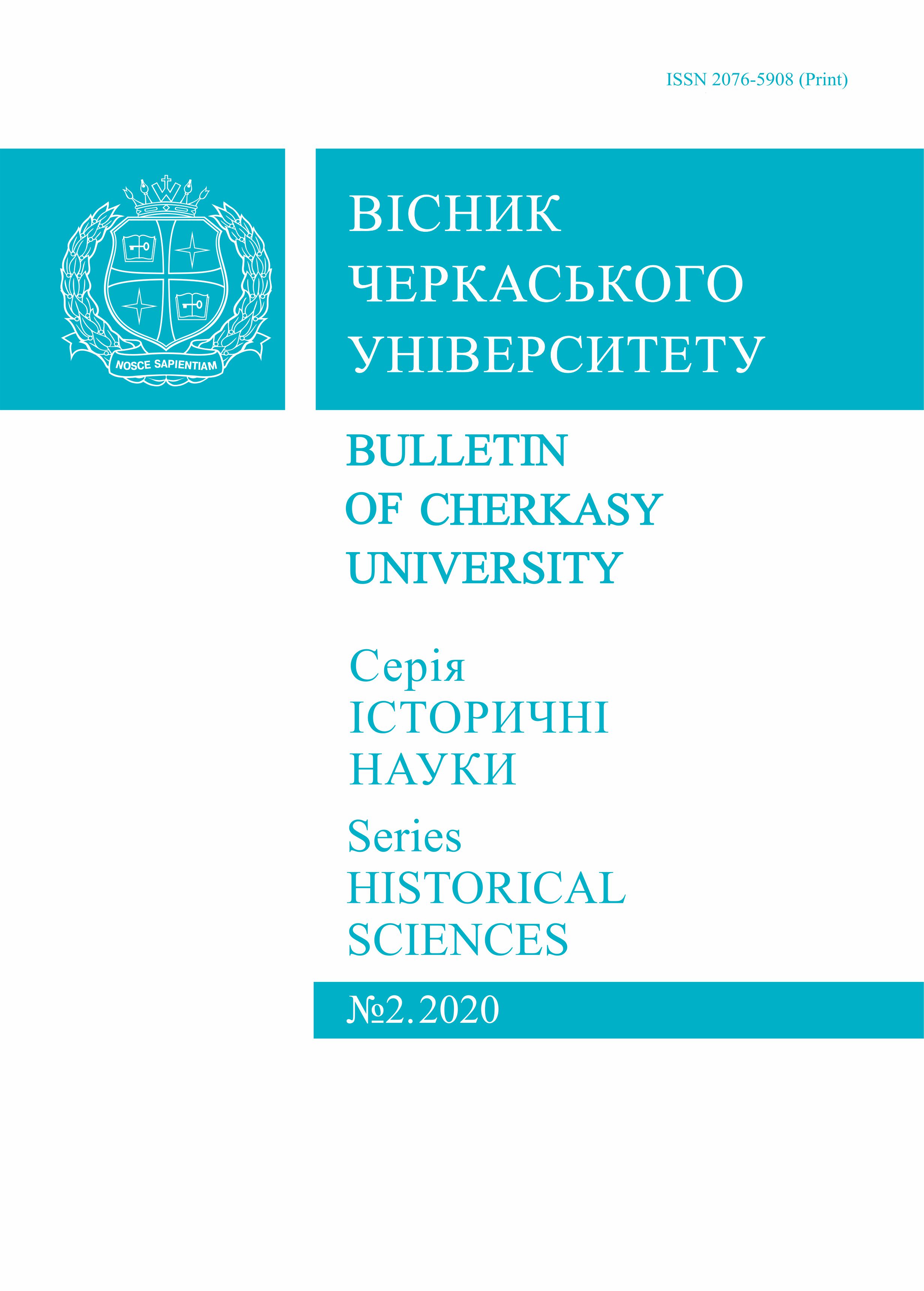Formation and development of Odessa customs n the early XIX c.
##plugins.themes.bootstrap3.article.main##
Анотація
Introduction. The formation and development of Odessa customs have a long history. The beginning of the XIX century for the Odessa customs is the most difficult - the period of its revival, organization and formation. The article focuses on the formation and formation of the Odessa port customs service and the problems it faced in the early nineteenth century. Today, Odessa remains a tourist, economic shell of the state, to which a large amount of goods is imported and exported through the port, and without fiscal authorities, the state’s economy has become a mess. The government was interested in the development of Odessa customs: from the day of its foundation (April 12, 1795) to the present day. Therefore, customs is not only an attribute of the state, but also one of the areas of active intergovernmental cooperation with economic interests in the city.
Purpose. The formation and development of Odessa customs in the early nineteenth century with the accession to the throne of Alexander I as a general aspect of scientific research remains a little-studied problem. Therefore, the aim of the article is to analyze and study the customs documentation of 1801 - 1817 to study the historical features of the development of Odessa customs and the problems faced by the institution of this period.
Achieving the stated goal requires the following tasks in the study: based on the analysis of archival sources to investigate the development of Odessa customs, consider the structure of customs management, staff expansion, customs location, to study the historical features of the problems faced by the customs service. Formulate scientifically sound recommendations for the prospects of further research.
Results. The chronological limits of the research of the beginning of the XIX century are determined. Based on the materials of the archive, the problems of activity and development of the Southern Customs against the background of the foreign trade policy of the state are analyzed. The problem of the territory and the search for a new building to expand the staff are considered.
Based on a study of the formation and development of Odessa customs in the early nineteenth century, it became possible to identify problems and risks of the customs system of 1801 - 1817. Further scientific development and evaluation of the work of the customs service of Odessa is promising, taking into account certain historical events for the development of the customs service.
Originality. The history of the formation and development of Odessa customs in the early nineteenth century and the problems faced by the institution at that time remains unresolved. Unfortunately, researchers did not pay much attention to the development of customs in Odessa before the emergence of Porto-Franco. Therefore, the study of new historical information about the Odessa customs is increasingly attracting the attention of many scholars.
Conclusion. Thus, the period from the accession to the throne of Alexander I - to the founding of Porto-Franco (1801 - 1817) falls on the formation and development of the Odessa port customs. During this period, during the analysis of DAOO documentation, the customs staff is being expanded, new positions are being filled, customs buildings are being built, quarantine is being improved, the trade situation and customs documentation are being improved, and porto-franco is being introduced.
Despite the favorable conditions for the development of Odessa customs in 1801 - 1817, the customs service faced a number of problems. The main one was corruption among the Odessa customs service. Bribery has become widespread, especially among small employees. Also, a serious fight against smuggling was hampered not only by the human factor, but also by logistics. Initially, the Odessa customs had to work in a room unsuitable for a large staff. The Odessa customs service did not have its own educational institution and the main disadvantage of the customs was the lack of women at work.
##plugins.themes.bootstrap3.article.details##
Посилання
Belousova L.G., Malinova G.L. (1995). Odessa customs is 200 years old. Odessa: OKFA. (in Russian).
Golovko Yi.I. (2003). Storage of offical documentation in the archives of coustoms institutions of Southern Ukraine (1776 – 1819). Notes of the research laboratory of the history of Southern Ukraine of the Zaporizhia State University: Southern Ukraine of the ХVIII – ХIХ centuries. Vol. 7. (in Ukr.).
De-Ribas L.M. (1894). From a newcomer Odessa. Odessa: L. Kirkhier. (in Russian).
State Arkhives of Odessa region (hereinafter – SAOR). (1810 – 1877). F. 40. Description. 1. Right. 1 (in Ukr.).
SAOR. F. 40. (1813). Description. 1. Right. 2 (in Ukr.).
SAOR. F. 40. (1812 – 1813). Description. 1. Right. 3 (in Ukr.).
SAOR. F. 41. (1803 – 1804). Description. 5. Right. 1 (in Ukr.).
SAOR. F. 41. (1803). Description. 5. Right. 2 (in Ukr.).
SAOR. F. 41. (1804). Description. 5. Right. 3 (in Ukr.).
SAOR. F. 41. (1811). Description. 5. Right. 4 (in Ukr.).
SAOR. F. 41. (1805 – 1806). Description. 6. Right. 1 (in Ukr.).
SAOR. F. 41. (1811 – 1818). Description. 6. Right. 2 (in Ukr.).
SAOR. F. 88. (1795 – 1841). Description. 1. Right. 240 (in Ukr.).
Markov L. N. (1987). Essays on the history of the coustoms service. Irkutsk. (in Russ.).
Open-air museum: from the history of the port, city, region. (2013). avt.-sost. O. N. Sevostyanova, T. N. Gleb-Koshanskaya. Odessa: Astroprint. (in Russian).
Nadler V. K. (1893) Odessa in the first era of its existence. Odessa: V. V. Krichner. in Russian).
Odessa 1794 – 1894. (1894). Publication of the City Public Administration. – Odessa: I. Shultse. – Issue. 1. (in Russian).
Southern coustoms through the prism of centuries. (2011). Ed. I.G. Kalіеnka – Odesa. (in Ukr.).
Savosina N. G. (2014). Territorial organization of coustoms affairs of the 19th century. Humanitarian vektor. History. 3 (39). (in Russ.).
Skalkovskiy A. (1837). The first thirty year of the history of the city of Odessa 1793 – 1823. Odessa: Gor. tip. (in Russian).

